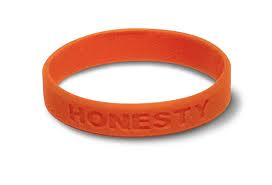 In the middle of a global pandemic, new etiquette rules must be considered. One must be aware of local guidelines as to the number of people allowed at gatherings (currently fifty people or fewer in Illinois). Always indicate on the invitation that wearing masks and social distancing should be honored by attendees. This means a mask is required and attendees must stay six feet apart. Offer masks to those who attend without a mask and indicate, in a non-confrontational manner, that masks must be worn. If someone chooses to not wear a mask, let them know it is for their safety and the safety of others and they will not be able to participate without a mask.
In the middle of a global pandemic, new etiquette rules must be considered. One must be aware of local guidelines as to the number of people allowed at gatherings (currently fifty people or fewer in Illinois). Always indicate on the invitation that wearing masks and social distancing should be honored by attendees. This means a mask is required and attendees must stay six feet apart. Offer masks to those who attend without a mask and indicate, in a non-confrontational manner, that masks must be worn. If someone chooses to not wear a mask, let them know it is for their safety and the safety of others and they will not be able to participate without a mask.
Posted on 19 November 2019 Comments (0)
Tags: Anna's Posts, Attitude, Behaviors, Brand Impact, Business Social Etiquette, Career, Career Builders, Civility, Coaching, communication, Critical Thinking, Culture, Emtional Intelligence
 Honesty is the best policy—at the right time. Being honest at the wrong time usually leads to friction and hurt feelings. Working with people who feel honesty is the best policy – even in the middle of difficult situations – I have witnessed that it has not always helped their careers. Instead, most often being honest at the wrong time has hurt their chances of upward movement.
Honesty is the best policy—at the right time. Being honest at the wrong time usually leads to friction and hurt feelings. Working with people who feel honesty is the best policy – even in the middle of difficult situations – I have witnessed that it has not always helped their careers. Instead, most often being honest at the wrong time has hurt their chances of upward movement.
 Arriving on time or early to a commitment you’ve made is a key element of being a true professional. Recently, an organization I was working with told me that one of their major complaints was about people who were always late—whether to work, meetings, or interviews. Some people think that being late indicates they have high demands on their time (which may be true). However, it shows a lack of respect for the individuals they keep waiting and the time those individuals are wasting while waiting. Being late discounts a person’s professionalism and any capital, they may have previously earned.
Arriving on time or early to a commitment you’ve made is a key element of being a true professional. Recently, an organization I was working with told me that one of their major complaints was about people who were always late—whether to work, meetings, or interviews. Some people think that being late indicates they have high demands on their time (which may be true). However, it shows a lack of respect for the individuals they keep waiting and the time those individuals are wasting while waiting. Being late discounts a person’s professionalism and any capital, they may have previously earned.
 The term “RSVP” is the abbreviation of the French phrase Réspondez s’il vous plait. It means “Please respond” – and it seems to be a dying habit. For years it was taken for granted that people would respond. Today, it’s a rarity to receive a response to an invitation. Non-responses are typical. Recently, I attended an event where the host had to track down invitees who had not responded. Why the rudeness? Not RSVPing shows a lack of etiquette and courtesy. It is good manners to respond within 24 hours of receiving the invite—even if just to say that you are not sure you are able to attend. After receiving the email invite regarding the recent event, I let the host know I might not be able to attend due to having a conflict with another event. The host was thrilled to receive the “maybe”. True professionals respond to their emails within 24 hours. One organization’s CEO has the firm rule that her staff members answer communications within 24 hours. It is a good rule for individuals and for businesses.
The term “RSVP” is the abbreviation of the French phrase Réspondez s’il vous plait. It means “Please respond” – and it seems to be a dying habit. For years it was taken for granted that people would respond. Today, it’s a rarity to receive a response to an invitation. Non-responses are typical. Recently, I attended an event where the host had to track down invitees who had not responded. Why the rudeness? Not RSVPing shows a lack of etiquette and courtesy. It is good manners to respond within 24 hours of receiving the invite—even if just to say that you are not sure you are able to attend. After receiving the email invite regarding the recent event, I let the host know I might not be able to attend due to having a conflict with another event. The host was thrilled to receive the “maybe”. True professionals respond to their emails within 24 hours. One organization’s CEO has the firm rule that her staff members answer communications within 24 hours. It is a good rule for individuals and for businesses.
Posted on 21 August 2018 Comments (0)
Tags: Anna's Posts, Attitude, Behaviors, Business Etiquette, Business Social Etiquette, Career, Career Builders, Civility, communication, Executive Presence, Leadership, Leadership Presence
 Today, more than ever in the professional and personal world:
Today, more than ever in the professional and personal world:
1. Speak truth not fiction
2. Admit a mistake by saying “I was wrong” and giving an apology
3. Only say nice things or avoid saying anything
4. Be on time for meetings or conference calls
5. Answer emails within 24 hours
Posted on 14 August 2018 Comments (0)
Tags: Anna's Posts, Attitude, Behaviors, Career Builders, Career Killers, Civility, Coaching, Critical Thinking, Interpersonal skills, Leadership, Professional Development
 Recognize that sharks are folks who use their power positions to ensure they will succeed, especially during a conflict or in a competition. Some sharks have developed through the environment they were born into. They manipulate people / situations and are masters at spin. Staying aware and taking precautions will help you avoid sharks by just staying out of their way.
Recognize that sharks are folks who use their power positions to ensure they will succeed, especially during a conflict or in a competition. Some sharks have developed through the environment they were born into. They manipulate people / situations and are masters at spin. Staying aware and taking precautions will help you avoid sharks by just staying out of their way.
 At a recent social function, my phone was being passed around to show a picture recently taken of the group. A person in the photo had possession of the phone and decided to email the picture out.
At a recent social function, my phone was being passed around to show a picture recently taken of the group. A person in the photo had possession of the phone and decided to email the picture out.
The only one allowed to send pictures out is the person who owns the phone or the one s / he gives permission to perform that function. With the unpredictability of social media today and the lack of privacy, releasing a picture should have the permission of everyone in it prior to sending it out or posting the photo on Facebook.
Posted on 21 November 2017 Comments (0)
Tags: Anna's Posts, Appearance, Attitude, Body Language, Business Etiquette, Business Social Etiquette, Career Builders, Civility, Confidence Builders, Culture, Leadership Presence, Personal Development, Professional Development
 Recently, I was at an event with a group and a friend greeted me. He looked confused on how to start shaking hands or even to say hello. This was a social gathering and everyone was friends.
Recently, I was at an event with a group and a friend greeted me. He looked confused on how to start shaking hands or even to say hello. This was a social gathering and everyone was friends.
Always begin left to right when greeting a large group. The only time you don’t use the left to right process is in a business situation where you begin with the most important person in the group. It can be the client or the most senior person in the room. Hugs are only allowed with permission. This also holds true when making introductions.
Posted on 21 September 2017 Comments (0)
Tags: Anna's Posts, Appearance, Attitude, Behaviors, Body Language, Business Social Etiquette, Career Builders, Civility, communication, Culture, Leadership, Leadership Presence, Relationship Building
 Disagreements are normal when working on a project, vision or strategy. I have always felt a successful end game needs to have different points of view to achieve a positive outcome. Now, that does not mean to always handle disagreements with kid gloves or bare fists. The main goal is to focus on the result. Four key items to remember are:
Disagreements are normal when working on a project, vision or strategy. I have always felt a successful end game needs to have different points of view to achieve a positive outcome. Now, that does not mean to always handle disagreements with kid gloves or bare fists. The main goal is to focus on the result. Four key items to remember are:
• Respect the person or persons
• Stay with the facts
• Honor the opposing side
• Leave the door open to revisit
 Let’s face it: when it comes to etiquette – which usually means simply exhibiting good manners in public – most of us are victims of a double standard. There is the standard to which you and I hold ourselves; and then there is the substantially lower standard which we and most of society find minimally acceptable. And we have learned over time that trying to help others move up to a higher standard is a losing proposition. The reason is a particular Catch-22 in the etiquette rulebook which dictates that calling someone out on a breach of etiquette is itself a breach of etiquette. Even if you attempt to delicately point out to your friend in private his opportunity for improvement, don’t count on any gratitude in return. Your best bet will be to make your point as best you can through the example you quietly project, recognizing that the only benefit, in all likelihood, will be the personal satisfaction you can take from at least attempting to raise the bar for civilized behavior.
Let’s face it: when it comes to etiquette – which usually means simply exhibiting good manners in public – most of us are victims of a double standard. There is the standard to which you and I hold ourselves; and then there is the substantially lower standard which we and most of society find minimally acceptable. And we have learned over time that trying to help others move up to a higher standard is a losing proposition. The reason is a particular Catch-22 in the etiquette rulebook which dictates that calling someone out on a breach of etiquette is itself a breach of etiquette. Even if you attempt to delicately point out to your friend in private his opportunity for improvement, don’t count on any gratitude in return. Your best bet will be to make your point as best you can through the example you quietly project, recognizing that the only benefit, in all likelihood, will be the personal satisfaction you can take from at least attempting to raise the bar for civilized behavior.
 In the middle of a global pandemic, new etiquette rules must be considered. One must be aware of local guidelines as to the number of people allowed at gatherings (currently fifty people or fewer in Illinois). Always indicate on the invitation that wearing masks and social distancing should be honored by attendees. This means a mask is required and attendees must stay six feet apart. Offer masks to those who attend without a mask and indicate, in a non-confrontational manner, that masks must be worn. If someone chooses to not wear a mask, let them know it is for their safety and the safety of others and they will not be able to participate without a mask.
In the middle of a global pandemic, new etiquette rules must be considered. One must be aware of local guidelines as to the number of people allowed at gatherings (currently fifty people or fewer in Illinois). Always indicate on the invitation that wearing masks and social distancing should be honored by attendees. This means a mask is required and attendees must stay six feet apart. Offer masks to those who attend without a mask and indicate, in a non-confrontational manner, that masks must be worn. If someone chooses to not wear a mask, let them know it is for their safety and the safety of others and they will not be able to participate without a mask.

 Honesty is the best policy—at the right time. Being honest at the wrong time usually leads to friction and hurt feelings. Working with people who feel honesty is the best policy – even in the middle of difficult situations – I have witnessed that it has not always helped their careers. Instead, most often being honest at the wrong time has hurt their chances of upward movement.
Honesty is the best policy—at the right time. Being honest at the wrong time usually leads to friction and hurt feelings. Working with people who feel honesty is the best policy – even in the middle of difficult situations – I have witnessed that it has not always helped their careers. Instead, most often being honest at the wrong time has hurt their chances of upward movement. Arriving on time or early to a commitment you’ve made is a key element of being a true professional. Recently, an organization I was working with told me that one of their major complaints was about people who were always late—whether to work, meetings, or interviews. Some people think that being late indicates they have high demands on their time (which may be true). However, it shows a lack of respect for the individuals they keep waiting and the time those individuals are wasting while waiting. Being late discounts a person’s professionalism and any capital, they may have previously earned.
Arriving on time or early to a commitment you’ve made is a key element of being a true professional. Recently, an organization I was working with told me that one of their major complaints was about people who were always late—whether to work, meetings, or interviews. Some people think that being late indicates they have high demands on their time (which may be true). However, it shows a lack of respect for the individuals they keep waiting and the time those individuals are wasting while waiting. Being late discounts a person’s professionalism and any capital, they may have previously earned. The term “RSVP” is the abbreviation of the French phrase Réspondez s’il vous plait. It means “Please respond” – and it seems to be a dying habit. For years it was taken for granted that people would respond. Today, it’s a rarity to receive a response to an invitation. Non-responses are typical. Recently, I attended an event where the host had to track down invitees who had not responded. Why the rudeness? Not RSVPing shows a lack of etiquette and courtesy. It is good manners to respond within 24 hours of receiving the invite—even if just to say that you are not sure you are able to attend. After receiving the email invite regarding the recent event, I let the host know I might not be able to attend due to having a conflict with another event. The host was thrilled to receive the “maybe”. True professionals respond to their emails within 24 hours. One organization’s CEO has the firm rule that her staff members answer communications within 24 hours. It is a good rule for individuals and for businesses.
The term “RSVP” is the abbreviation of the French phrase Réspondez s’il vous plait. It means “Please respond” – and it seems to be a dying habit. For years it was taken for granted that people would respond. Today, it’s a rarity to receive a response to an invitation. Non-responses are typical. Recently, I attended an event where the host had to track down invitees who had not responded. Why the rudeness? Not RSVPing shows a lack of etiquette and courtesy. It is good manners to respond within 24 hours of receiving the invite—even if just to say that you are not sure you are able to attend. After receiving the email invite regarding the recent event, I let the host know I might not be able to attend due to having a conflict with another event. The host was thrilled to receive the “maybe”. True professionals respond to their emails within 24 hours. One organization’s CEO has the firm rule that her staff members answer communications within 24 hours. It is a good rule for individuals and for businesses. Today, more than ever in the professional and personal world:
Today, more than ever in the professional and personal world: Recognize that sharks are folks who use their power positions to ensure they will succeed, especially during a conflict or in a competition. Some sharks have developed through the environment they were born into. They manipulate people / situations and are masters at spin. Staying aware and taking precautions will help you avoid sharks by just staying out of their way.
Recognize that sharks are folks who use their power positions to ensure they will succeed, especially during a conflict or in a competition. Some sharks have developed through the environment they were born into. They manipulate people / situations and are masters at spin. Staying aware and taking precautions will help you avoid sharks by just staying out of their way. At a recent social function, my phone was being passed around to show a picture recently taken of the group. A person in the photo had possession of the phone and decided to email the picture out.
At a recent social function, my phone was being passed around to show a picture recently taken of the group. A person in the photo had possession of the phone and decided to email the picture out. Recently, I was at an event with a group and a friend greeted me. He looked confused on how to start shaking hands or even to say hello. This was a social gathering and everyone was friends.
Recently, I was at an event with a group and a friend greeted me. He looked confused on how to start shaking hands or even to say hello. This was a social gathering and everyone was friends. Disagreements are normal when working on a project, vision or strategy. I have always felt a successful end game needs to have different points of view to achieve a positive outcome. Now, that does not mean to always handle disagreements with kid gloves or bare fists. The main goal is to focus on the result. Four key items to remember are:
Disagreements are normal when working on a project, vision or strategy. I have always felt a successful end game needs to have different points of view to achieve a positive outcome. Now, that does not mean to always handle disagreements with kid gloves or bare fists. The main goal is to focus on the result. Four key items to remember are: Let’s face it: when it comes to etiquette – which usually means simply exhibiting good manners in public – most of us are victims of a double standard. There is the standard to which you and I hold ourselves; and then there is the substantially lower standard which we and most of society find minimally acceptable. And we have learned over time that trying to help others move up to a higher standard is a losing proposition. The reason is a particular Catch-22 in the etiquette rulebook which dictates that calling someone out on a breach of etiquette is itself a breach of etiquette. Even if you attempt to delicately point out to your friend in private his opportunity for improvement, don’t count on any gratitude in return. Your best bet will be to make your point as best you can through the example you quietly project, recognizing that the only benefit, in all likelihood, will be the personal satisfaction you can take from at least attempting to raise the bar for civilized behavior.
Let’s face it: when it comes to etiquette – which usually means simply exhibiting good manners in public – most of us are victims of a double standard. There is the standard to which you and I hold ourselves; and then there is the substantially lower standard which we and most of society find minimally acceptable. And we have learned over time that trying to help others move up to a higher standard is a losing proposition. The reason is a particular Catch-22 in the etiquette rulebook which dictates that calling someone out on a breach of etiquette is itself a breach of etiquette. Even if you attempt to delicately point out to your friend in private his opportunity for improvement, don’t count on any gratitude in return. Your best bet will be to make your point as best you can through the example you quietly project, recognizing that the only benefit, in all likelihood, will be the personal satisfaction you can take from at least attempting to raise the bar for civilized behavior.

